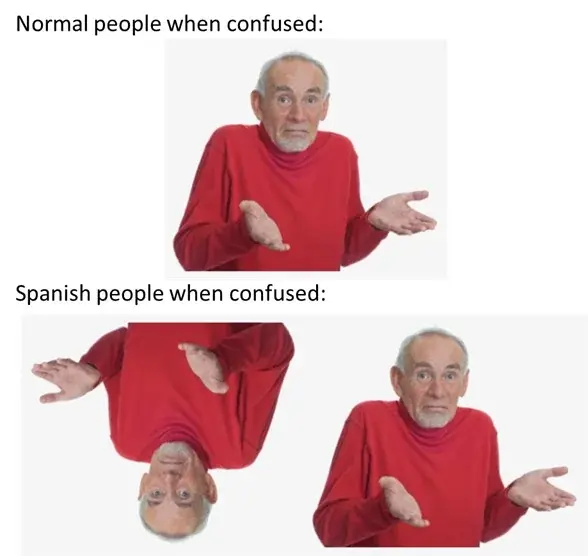this post was submitted on 05 Nov 2023
1256 points (98.3% liked)
Memes
45746 readers
1901 users here now
Rules:
- Be civil and nice.
- Try not to excessively repost, as a rule of thumb, wait at least 2 months to do it if you have to.
founded 5 years ago
MODERATORS
you are viewing a single comment's thread
view the rest of the comments
view the rest of the comments

In Spanish questions are phrased the same way as affirmations, when you are speaking the only difference is the intonation. Without a mark to say you are starting to read a question it's possible that the meaning changes in the end which would be annoying. (Source: Portuguese is the same but has no inverted question mark, and sometimes it's mighty annoying, especially with long questions)
¿What if you just used them anyway?
¡Problem solved!
Yeah that's true for any language really
Not really. In my language subject and verb get switched around in a question. So you immediately know it’s a question when you start reading the sentence.
Can you give me an example?
Edit: Ok thanks guys, I got it :D
Maybe
but taken to the extreme?
Hij schreef een bericht. (He wrote a message)
Schreef hij een bericht? (Did he wrote a message?)
In Dutch you can often tell it's a question from the start because the order of verb and object have changed.
Zeg eens, waarom wil je zo graag met een CEO slapen?
Fuck Spez daarom
Can you give me an example - Question
You can give me an example - Affirmation
I know you already got it but a few others came to my mind:
Finnish, which not a tonal language:
Japanese:
I think you'll find the pattern of question words/suffixes in nearly every language that is not explicitly tonal.
Yeah that's initially why I thought there was no difference to Spanish. But the difference is Spanish actually doesn't have an option where you switch subject and verb. Didn't know that :)
É de facto irritante. Nada como estar na escola e um prof pede para ler. Estás calmamente a ler o texto e de repente tens de forçar a porcaria da entoação para sobrecompensar o facto de que não reparaste que era uma pergunta